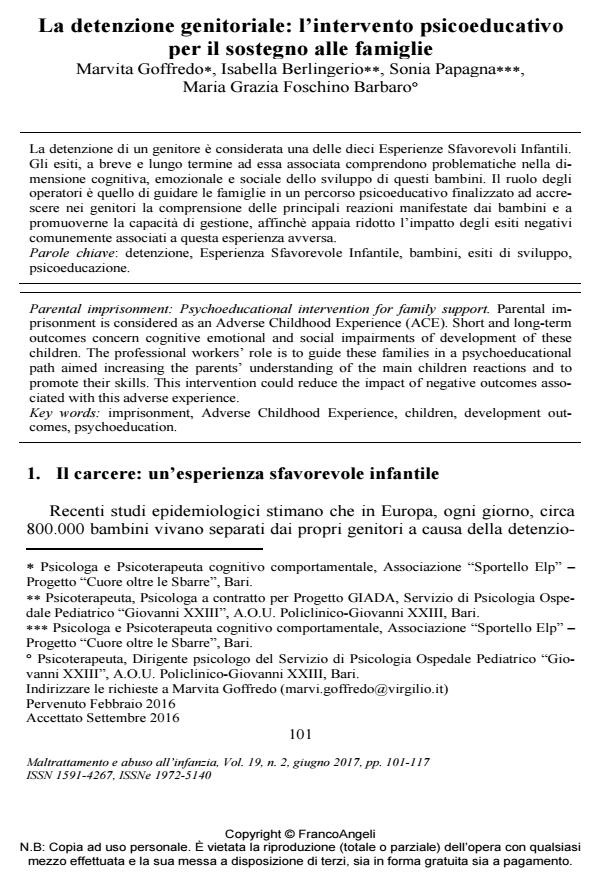Parental imprisonment: Psychoeducational intervention for family support
Journal title MALTRATTAMENTO E ABUSO ALL’INFANZIA
Author/s Marvita Goffredo, Isabella Berlingerio, Sonia Papagna, Maria Grazia Foschino Barbaro
Publishing Year 2017 Issue 2017/2
Language Italian Pages 17 P. 101-117 File size 244 KB
DOI 10.3280/MAL2017-002006
DOI is like a bar code for intellectual property: to have more infomation
click here
Below, you can see the article first page
If you want to buy this article in PDF format, you can do it, following the instructions to buy download credits

FrancoAngeli is member of Publishers International Linking Association, Inc (PILA), a not-for-profit association which run the CrossRef service enabling links to and from online scholarly content.
Parental imprisonment is considered as an Adverse Childhood Experience (ACE). Short and long-term outcomes concern cognitive emotional and social impairments of development of these children. The professional workers’ role is to guide these families in a psychoeducational path aimed increasing the parents’ understanding of the main children reactions and to promote their skills. This intervention could reduce the impact of negative outcomes associated with this adverse experience.
Keywords: Imprisonment, Adverse Childhood Experience, children, development outcomes, psychoeducation
- Genitorialità in carcere: le strategie di mantenimento del rapporto coi figli attraverso le narrazioni di padri detenuti Antonella Reho, Laura Fruggeri, in MALTRATTAMENTO E ABUSO ALL'INFANZIA 2/2018 pp.47
DOI: 10.3280/MAL2018-002004
Marvita Goffredo, Isabella Berlingerio, Sonia Papagna, Maria Grazia Foschino Barbaro, La detenzione genitoriale: l’intervento psicoeducativo per il sostegno alle famiglie in "MALTRATTAMENTO E ABUSO ALL’INFANZIA" 2/2017, pp 101-117, DOI: 10.3280/MAL2017-002006